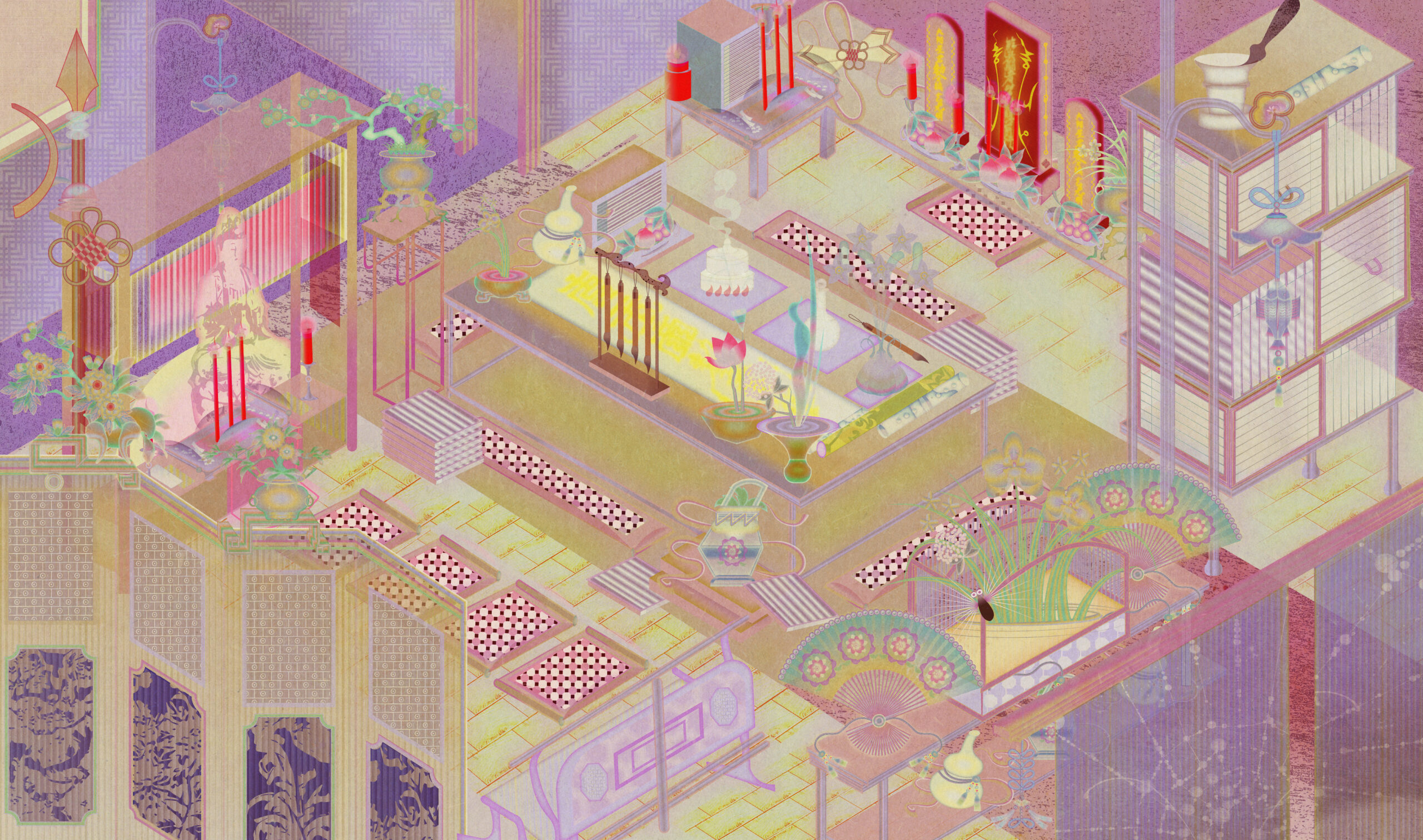TURNER PRIZE 2014
| April 3, 2015 | Post In LEAP 31
TATE BRITAIN
2014.09.30~2015.01.04
Disparate imagery, associative connections, and distinct emotional distance define a network of rooms organized for the visitor to carve an unhindered and fairly unchallenging path through this year’s Turner Prize exhibition. The attitude that once popularized the event, or at least made it infamous, has shrunk away over the past decade. Selected artists now eschew the opportunity for infamy, choosing instead to gently unfurl more balanced accounts of their practices. As such, this year’s show re-presents exhibitions, and, in at least one case, even simply relocates previously exhibited work.

In Ciara Phillips’s exhibition “Workshop” at The Showroom in London, the action of printing was enlivened through her instigation of an open studio workshop. At the Tate, however, the institution keeps its form as a place for the presentation of static, pre-made images, and we are left with a remnant: floor-to-ceiling block color prints. An attempt at reanimation comes through an overhead speaker encased in a wall structure for the visitor to enter and listen to a soundtrack within, but it falls short. A waist-height vitrine displaying artist-printed publications seems almost antiquated; rather than an immersive print installation, we are left with a kind of polite café-aesthetic wallpapered room.
Tris Vonna-Michell’s vitrines gather a visual script of found or archival photographs and text that artists accumulates in the collation of fiction and autobiography that is Postscript (Berlin). It is impossible to escape the voice-over dominating the room, which, rather than seducing or even weaving a narrative as in his previous live performance work, comes across as a form of trite poiesis. Here, what could potentially be generous, funny work seems cold and distant, half-dreamed or even just half-cocked, the access point mired in a mind that has created an in-depth body of research that struggles to be articulated in this incarnation.
Duncan Campbell’s film and video work It for Others displays the only confrontational social conscience of the show, and deserves its award for this alone. The artist here responds to Chris Marker and Alain Resnais’s 1953 film Statues Also Die, guiding us on a masterfully edited journey through the orientalism of survey museums with postcolonial theory as a crutch and right up to the current value of video work in the art market. It is a self-referential and, at times, self-righteous work about consumerism, semiotics, and objects of value and exchange to which a pedagogical tone seems well-suited if sometimes defensive.
The most seemingly on-the-pulse of the four artists, James Richards centers an oversize conference television in the space with four channels: wires are left exposed on the carpet like bored entrails such that, with the casual flippancy characteristic of his generation, the arrangement appears to have simply landed there, circumstantial in its installation. With light seeping in from the next room the space is not a cave, but is instead doused in an intermediate twilight. The flickering image on the screen is a gentle exploration of angles, exposing the artist’s roving eye and collecting habits.
The layout, the institution, the content is unassuming, even quiet. Art in the face of politics and governance gives way to aestheticization (in the case of Phillips and Richards), musing (Vonna-Mitchell), and self-aware academicization (Campbell). The Turner Prize has been an important barometer of British art since it was founded in 1984, but in this tense ecological and economic post-crash storm, it cannot locate a reading. The artists’ willingness to make broad strokes rather than definitive arguments owes much to a climate of continuously shifting sands in which risk-taking is muted in the face of austerity and precarity.
<.

